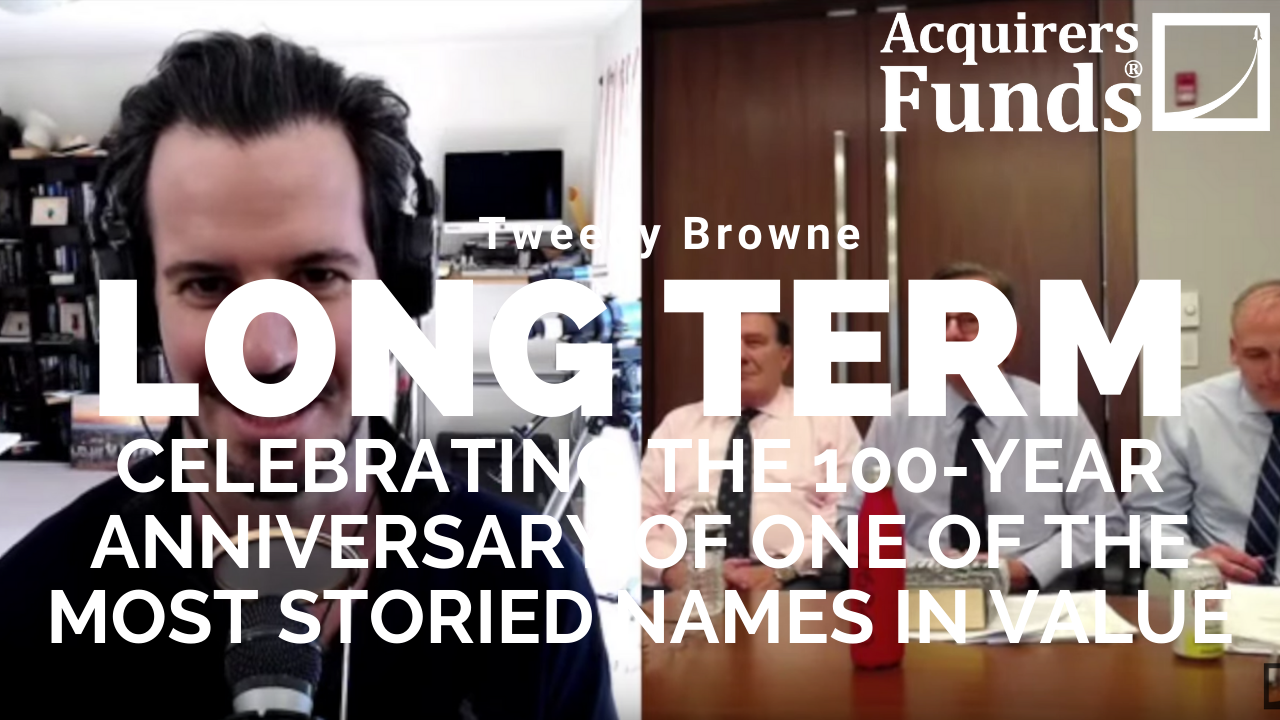During his recent interview with Tobias, the team from Tweedy Browne discussed Valuing Companies Using Comparative M&A Deals In Similar Industries. Here’s an excerpt from the interview:
Jay Hill:
So one of the things that I think people find interesting about our process is that the analysts here probably spend anywhere from 20 to 30% of their time just tracking M&A deals in different industries, and trying to build a frame of reference for what buyers in different industries, what types of multiples they’re willing to pay. And I would say in general, multiples tend to be highly influenced by the organic growth prospects of the business, the returns on invested capital of the business, the stability of earnings, particularly through recessions. And if there’s a fourth criteria, it would be synergy potential. There are certain industries where a buyer can pay what looks like a really high multiple to the seller. But in fact, it’s a one win win for both the buyer and the seller, because the cost synergies are so large that it can actually make sense for the buyer as well.
Jay Hill:
I can tell you that we apply this same theoretical private market value framework to both large-cap companies like a Nestle, let’s say where the prospects of a deal are highly unlikely just due to the size of the company. We also apply this to small-caps and mid-caps where a deal is a very real possibility. Another thing that it’s probably important to understand is that we make sure that every new idea passes a two part test. So the first part is what I just mentioned, is the stock trading at a substantial discount to our conservative estimate of intrinsic value based upon M&A deals. Right? And the second criteria is, is the stock just cheap on a standalone absolute basis, without looking at the M&A deals, right? And the reason that we have that second criteria is because we’ve realized that sometimes buyers overpay. And we don’t want to extrapolate what we believe are unsustainable purchase price multiples on businesses that we’re studying. So that’s really the underlying criteria. I can tell in terms of how do we identify new stocks?
Frank Hawrylak:
Can I just add-
Jay Hill:
Sure.
Frank Hawrylak:
-one thing? This is Frank Hawrylak, to what he said. It sort of implied in what he said, but I’d like to state it explicitly is, the valuations have to have some sort of cash flow support. Because there are plenty of areas where you can find deals or values based on some metric that isn’t related to earnings or operating income some other metric-
Tobias Carlisle:
Eyeballs that used to be very popular.
Tom:
Yeah, eyeballs.
Frank Hawrylak:
Yeah, you’ve got it. So this idea of having cash flow support and not necessarily looking too far out in terms of making judgments, how far out to go in assuming that the current earnings are going to continue. We try to think more here and now earnings, maybe look out a little bit but not out, years and years or decades. We do think a lot, especially about the better businesses about the economics, the competitive environment, whether these returns are sustainable, but in terms of guessing future earnings or discounting them back, we rely more on deal multiples instead of some discounted cash flow model. Go ahead.
You can find out more about Tobias’ podcast here – The Acquirers Podcast. You can also listen to the podcast on your favorite podcast platforms here:
For all the latest news and podcasts, join our free newsletter here.
Don’t forget to check out our FREE Large Cap 1000 – Stock Screener, here at The Acquirer’s Multiple:




